Related Research Articles

The University of Ljubljana, often referred to as UL, is the oldest and largest university in Slovenia. It has approximately 39,000 enrolled students.
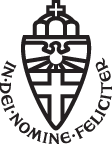
Radboud University (abbreviated as RU, Dutch: Radboud Universiteit, formerly Katholieke Universiteit Nijmegen) is a public research university located in Nijmegen, Netherlands. The university bears the name of Saint Radboud, a 9th century Dutch bishop who was known for his intellect and support of the underprivileged.
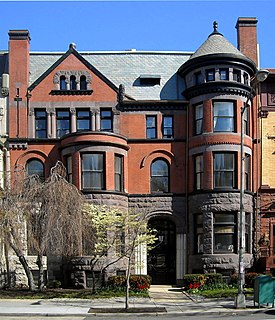
The American Political Science Association (APSA) is a professional association of political science students and scholars in the United States. Founded in 1903, in the Tilton Memorial Library of Tulane University in New Orleans, it publishes four academic journals. APSA Organized Sections publish or are associated with 15 additional journals.
The International Political Science Association (IPSA), founded under the auspices of UNESCO in 1949, is an international scholarly association. IPSA is devoted to the advancement of political science in all parts of the world. During its history it has helped build bridges between East and West, North and South, and has promoted collaboration between scholars in both established and emerging democracies. Its aim is to create a global political science community in which all can participate, most recently it has been extending its reach in Eastern Europe and Latin America. IPSA has consultative status with the Economic and Social Council of the United Nations (ECOSOC), with the United Nations Educational Scientific and Cultural Council (UNESCO) and it is a member of the International Social Science Council and of the Global Development Network.
The International Social Science Council (ISSC) was an international non-governmental organization promoting the social sciences, including the economic and behavioural sciences. It was founded in Paris, France between 6 and 9 October 1952, under the auspices of UNESCO, following a Resolution at the 6th UNESCO General Conference in 1951. It was adopted on 19 September 1972, completed and revised on 14 November 1979, and underwent multiple revisions on 17 December 1985, 3 December 1992, 27 November 1998, 8 November 2006 and finally 10 December 2010. ISSC is registered in accordance with French Law.
The European Consortium for Political Research (ECPR) is a scholarly association that supports and encourages the training, research and cross-national cooperation of many thousands of academics and graduate students specialising in political science and all its sub-disciplines. ECPR membership is institutional rather than individual and, at its inception in 1970, comprised eight members. Membership has now grown to encompass more than 350 institutions throughout Europe, with associate members spread across the world.

David R. Mayhew is a political scientist and Sterling Professor of Political Science Emeritus at Yale University. He is widely considered one of the leading scholars on the United States Congress, and the author of nine influential books on American politics, including Congress: The Electoral Connection. In 2017, University of California, Berkeley professor Eric Schickler chronicled Mayhew's lifetime of contributions to the study of Congress in a journal article published in The Forum. Mayhew has been a member of the Yale faculty since 1968, and his students include several leading contemporary scholars of American politics, including the University of California, San Diego professor Gary Jacobson, Yale professor Jacob Hacker, and Northwestern Pritzker School of Law professor Steven Calabresi, as well as many famous figures such as Detroit Lions Pro Bowl quarterback Greg Landry and CNN personality Chris Cuomo. He has also taught at the University of Massachusetts, Amherst College, Oxford University, and Harvard University.

Khazar University, is a private university located in Baku, Azerbaijan.

Every year, the International Astronautical Federation with the support of the International Academy of Astronautics and the International Institute of Space Law (IISL), holds the International Astronautical Congress (IAC) which is hosted by one of the national society members of the IAF.
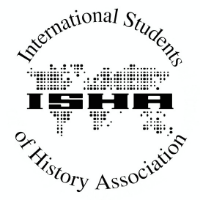
The International Students of History Association (ISHA) is an international non-governmental organization of students of history. Based and active mainly in Europe, ISHA's goals are to facilitate communication and provide a platform of exchange for students of history and related sciences on an international level.
Scholars at Risk (SAR) is a U.S.-based international network of academic institutions organized to support and defend the principles of academic freedom and to defend the human rights of scholars around the world. Network membership includes over 530 higher education institutions in 42 countries.

Bangabandhu Sheikh Mujibur Rahman Agricultural University (BSMRAU) is a public agricultural university in Bangladesh, established in 1998. It is located at South Salna, in Gazipur District. It is 9.5 kilometres (5.9 mi) from Gazipur Chowrasta, just east of the Dhaka-Mymensingh Highway.

The World Uyghur Congress is an international organization of exiled Uyghur groups that aspires to "represent the collective interest of the Uyghur people" both inside and outside of the Xinjiang Uyghur Autonomous Region of the People's Republic of China. The World Uyghur Congress describes itself as a nonviolent and peaceful movement that opposes what it considers to be the Chinese occupation of East Turkestan and advocates rejection of totalitarianism, religious intolerance and terrorism as an instrument of policy. The Congress is funded in part by the National Endowment for Democracy or NED of the United States. It has been called a terrorist organization by the Chinese government and Chinese state-controlled media.
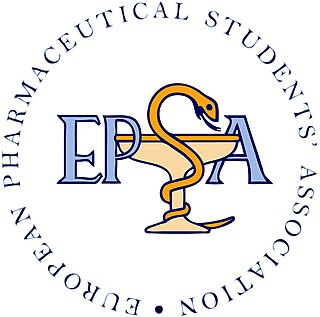
The European Pharmaceutical Students' Association (EPSA) is a non-profit, non-governmental, non-political and non-religious umbrella association of 45 Pharmaceutical Students' Associations from 36 countries, representing over 100.000 pharmaceutical students across Europe. Its main objective is 'to develop the interests and opinions of European pharmaceutical students and to encourage contact and collaboration between them'. EPSA's motto '"Bringing Pharmacy, Knowledge and Students Together" reflects its will to promote the ideas and opinions of all European pharmaceutical students in order to improve the Education, the Pharmaceutical Profession and the Scientific Advances regarding Pharmacy. EPSA has its headquarters in Brussels, Belgium, in PGEU's offices. The Vice President of External Affairs works permanently there, collaborating with the Pharmaceutical Group of the European Union in the promotion of the role of the pharmacist as the key actor in public health. Before being settled in Brussels, EPSA had its headquarters in Leiden, The Netherlands.
The Society for Romanian Studies (SRS), founded in 1973, is an international inter-disciplinary academic organization dedicated to Romanian studies. It draws its members – junior and senior scholars, graduate students, and government experts – primarily from North America, Romania, the Republic of Moldova and Western Europe. Through its activities, the SRS wishes to facilitate academic exchange within and across a multitude of disciplines, including history, sociology, geography, anthropology and ethnography, political science, philosophy, law and justice studies, literature and linguistics, economics and business, international affairs, religious, gender, film and media studies, art history, music and education. The society understands Romanian studies broadly to encompass political, socioeconomic and cultural developments in Romania and the Republic of Moldova, the situation of their ethnic minorities and their relations with the ethnic majority, as well as the position of Romanians and Moldovans living outside those countries.
The Karl Deutsch Award is awarded by the International Political Science Association (IPSA) each year an IPSA World Congress of Political Science is held. The recipient of the award presents the Karl Deutsch Lecture or leads a special session at the World Congress. The purpose of the award is to honour a prominent scholar engaged in cross-disciplinary research. It was named after the prominent political scientist Karl Deutsch. According to a reputation survey conducted in 2013 and 2014, it is the third most prestigious international academic award in political science, after the Johan Skytte Prize in Political Science and the Stein Rokkan Prize for Comparative Social Science Research.
Nina Yurievna Belyaeva is a Russian public policy researcher, PhD, professor and head of the Public Policy Department. at National Research University Higher School of Economics, Moscow, Russia. Member of Russian Political Science Association, which is a part of IPSA.
CEISAL is a network of the main institutes and specialised centres in Latin American studies, and national associations of social research on Latin America in Europe. It consists of 51 members representing 19 European countries. It is a plural and critical space for reflection from the different fields in Social Sciences in order to broaden the knowledge of the social, cultural, economic and political realities.
Policy Studies Organization is an academic organization whose purpose is to advance the study of policy analysis by publishing academic journals and book series, sponsoring conferences and producing programs.
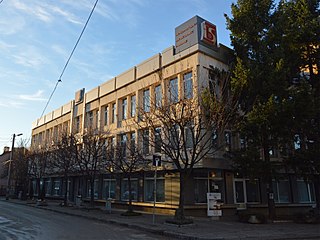
International Business School (IBS) in Botevgrad, with a second campus in Sofia, is an independent private higher school in Bulgaria.
References
- ↑ International Association For Political Science Students. IAPSS. https://iapss.org/
- ↑ "IAPSS – The International Association for Political Science Students". European Students Union. Retrieved 3 August 2019.
- ↑ "Student Associations". The University of Queensland Australia. Retrieved 3 August 2019.
- ↑ "IAPSS Facebook Page". Facebook. Retrieved 2021-03-16.
- ↑ IAPSS World Congress in London was a Great Success! International Political Science Association: https://www.ipsa.org/news/news/iapss-world-congress-london-was-great-success
- ↑ IAPSS World Congress 2017. CEU Department of Political Science: https://politicalscience.ceu.edu/events/2017-04-04/iapss-world-congress-2017
- ↑ IAPSS World Congress in Paris: A Congress to Remember.International Political Science Association: https://www.ipsa.org/news/news/iapss-world-congress-paris-congress-remember
- 1 2 "IAPSS World Congress" . Retrieved 2020-02-09.
- ↑ "IAPSS Regional Conference 2019 - Paths towards Climate Justice". www.conferencealerts.com. Retrieved 2020-02-09.
- ↑ "DEMOCRACY, IDENTITY & POWER IN ASIA" . Retrieved 2021-04-03.
- ↑ See e.g. Cox, Michaelene, and Jaimie M. Kent (2018): ‘Political Science Student Journals: What Students Publish and Why Student Publishing Matters’, PS: Political Science & Politics 51(4): pp. 804-810. DOI: https://doi.org/10.1017/S1049096518000057
- ↑ See e.g. APSA (2019): ‘Graduate and Undergraduate Student Journals’. https://www.apsanet.org/RESOURCES/For-Students/Student-Journals
- ↑ See e.g. Editorial Board (2018): ‘List of Periodicals’, International Political Science Abstracts 68(6): p. 834. DOI: https://doi.org/10.1177/002083451806800609
- ↑ Encuentro Latinoamericano. IAPSS: https://iapss.org/academics/ela/
- ↑ A Different View. IAPSS: https://iapss.org/academics/a-different-view/
- ↑ International Association For Political Science Students. UNESCO: https://en.unesco.org/partnerships/non-governmental-organizations/international-association-political-science-students
- ↑ International Association for Political Science Students. American Political Science Association: https://www.apsanet.org/RESOURCES/For-the-Public/Political-Science-Organizations/International-Political-Science-Associations/International-Association-for-Political-Science-Students
- ↑ Directory of Partnerships. ISA. https://www.isanet.org/ISA/Partners